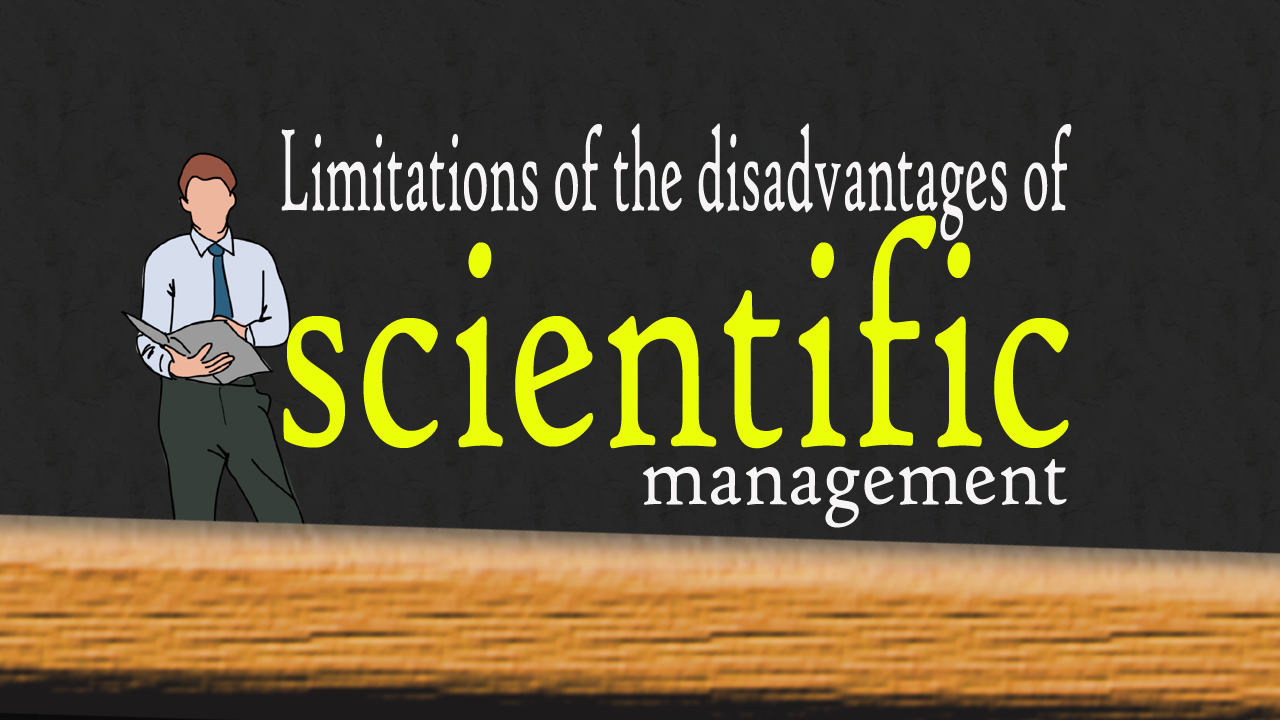10 Scientific Management – Limitation Disadvantage
10 Limitations of the disadvantages of scientific management:
Introduction:
Scientific management is a philosophy or method that is based on research and inquiry and analysis and aims to produce the maximum amount with the help of minimum materials. Scientific management is a revolutionary step in the management of industries. Although the introduction of its explanation has many advantages, it also has some disadvantages. Its disadvantages are discussed below.
1. Expensive method:
Scientific management cannot be applied to small factories or organizations because a lot of money is needed to follow scientific management.
2. Lack of stimulus:
Workers have to work under the direction of the foreman or supervisor. They create a feeling of boredom among the workers and a lack of enthusiasm and stimulus at work.
3. Opposition to the workers’ union:
The union opposes the allegation that it undermines the unity of workers in scientific management. Such management puts extra stress on the body and mind of the workers.
4. Decrease in labor unity:
In scientific management, different wages are set for different workers for different amounts of work. As a result, dissatisfaction and jealousy arose among them. As a result, the unity of the workers is destroyed.
5. Strategy change:
Workers do not like it because the methods and methods of scientific management change. As a result, the continuity of activities here is ruined.
6. Unemployment:
Older workers are more likely to be unemployed as they are unfamiliar with new equipment and techniques.
7. Lack of universality:
Scientific management does not consider other types of organizations or problem-solving. Scientific management only thinks about factory management and production management.
8. Principles against science:
The appointment of eight action heroes in advertising management has in many cases created a conflicting attitude among the workers. As a result, many principles of this system have been considered against science.
9. Undemocratic system:
Scientific management is antithetical and undemocratic to the workers’ welfare system. Because in such management, the senior employees run the workers like machines.
10. Difficulty in determining the value:
Determining the quality of work requires a complex approach to scientific management, so many people do not understand the issue.
Conclusion:
In conclusion, there are many difficulties in scientific management that have led to the emergence of other management theories.
